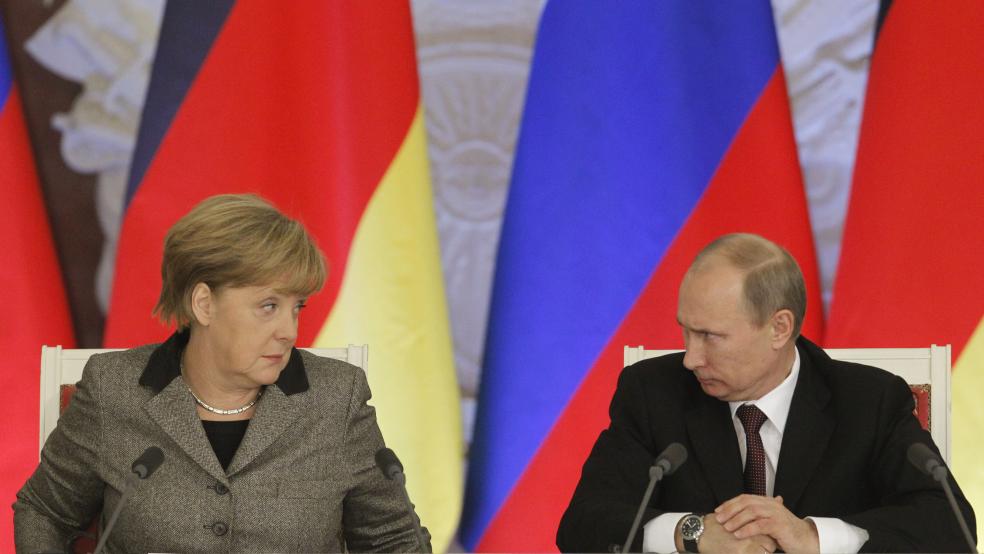As the crisis in Ukraine continues with Russian President Vladimir Putin’s contempt of the west growing, it’s becoming clear that German Chancellor Angela Merkel will be a key player if the crisis is to be resolved without a wider conflict.
Since the crisis began, Merkel has played the stern headmaster to the United States and Russia, which appear more as squabbling students than world powers. Amid heated rhetoric coming from both Washington and Moscow, Merkel has been measured, chastising Russia when necessary, but calling for restraint from countries eager to punish Russia.
Related: Putin Wants Eastern Ukraine. Let Him Have It
Merkel is in the perfect position to ease the crisis. She grew up in East Germany under Soviet rule, a period that Putin appears to aspire to bring back. As a fluent Russian speaker, she can communicate with Putin in his native tongue (Putin also speaks German).
She is also Putin’s closet European ally. The reason for this is pragmatic; Germany and Russia have deep economic ties through energy, and Russia relies on payment for this energy to fill state coffers. It’s also a reflection of the German public, which has grown skeptical of Washington during the Bush and Obama administrations.
This pragmatism is evident in the way that Merkel has handled the crisis. Early on, when Washington was calling for weighty sanctions aimed at bankrupting Russia, she urged restraint. But when the Malaysian Airlines Flight 17 was shot down, and 298 civilians had been killed, Putin’s militia was seen to have crossed a line, and Germany issued tougher economic penalties.
It’s also evident in the rhetoric Merkel has used to describe the crisis. Much was made of her comment in March that Putin was living “in another world.” Many took that as a slight against Putin. But in hindsight, Merkel was simply saying that Putin’s worldview was quite different than the rest of the international community. She’s since been proven right.
Related: How Obama's White House Lost Ukraine in a Few Stupid Steps
Merkel’s effectiveness as a mediator in the crisis was evident Saturday. A day after Russia trucks carrying unknown supplies to Ukraine (Moscow says humanitarian aid, while the United States claims they were military vehicles) she arrived in Kiev and the Russian trucks turned around. She also suggested that the crisis could be resolved if the Ukraine-Russia border is tightened.
“There must be two sides to be successful. You cannot achieve peace on your own. I hope the talks with Russia will lead to success," Merkel said ahead of a Tuesday meeting between involving Russian President Vladimir Putin and Ukrainian President Petro Poroshenko. “The plans are on the table, about how you can achieve peace and good cooperation between the countries. Now actions must follow.”
“Now we need a two-sided ceasefire linked to a clear controlling of the Russian-Ukrainian border, otherwise peace won’t be achieved," Merkel added.
A careful read of Merkel’s comments show that she’s offering a middle ground. Russian can send aid if the Ukrainians can inspect the trucks delivering it at a secure border checkpoint. At a time when Ukraine and Russia appear close to all-out war and far apart, creating this middle ground is an important first step to ending the crisis.
Top Reads from The Fiscal Times:
- The Israeli Solution for Kurdistan
- Obama Makes the Middle East Our New ‘Quagmire’
- Here’s the Real Reason Russia Is in Iraq





